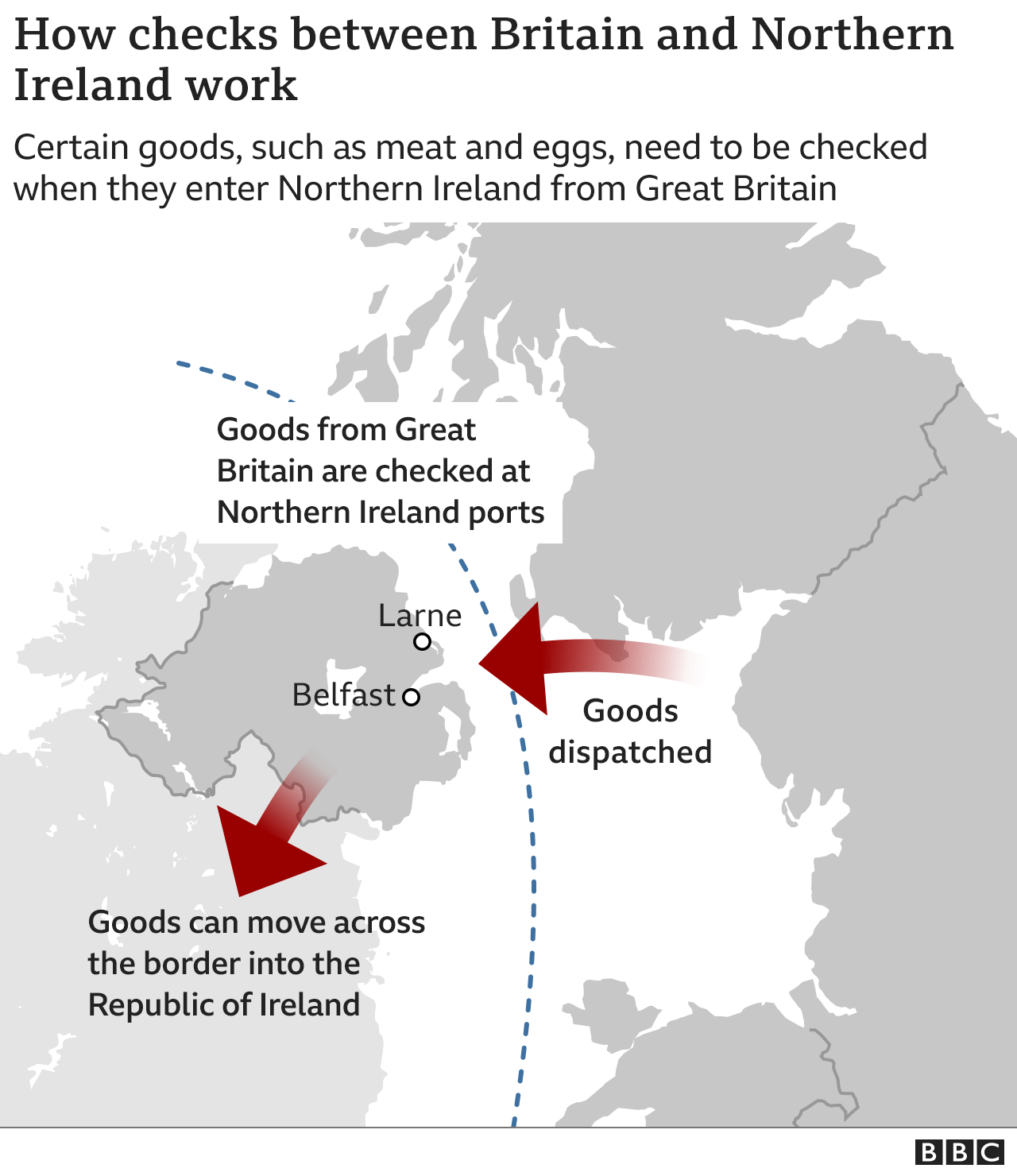Brexit: EU law change aims to guarantee medicine supply
- Published

The European Parliament has approved changes to EU law to ensure the supply of medicines from Great Britain to Northern Ireland
The European Parliament has approved changes to EU law aimed at guaranteeing the supply of medicines from Great Britain to Northern Ireland.
The Northern Ireland Protocol means NI is still inside the EU's pharmaceutical regulatory system.
However, it gets most of its medicines from Great Britain, which is not.
This emerged as one of the protocol's major difficulties with pharmaceutical firms warning it would lead to withdrawal of products.
In December 2021, the EU published proposals which were aimed at creating something close to the pre-Brexit status quo.
Essentially it means medicines entering Northern Ireland from Great Britain will not need additional labelling or testing, things which would have been required by the protocol in its original form.
Companies located in Great Britain can continue to use the same pack and leaflet for all parts of the UK with no need for NI-specific packaging.
All regulatory functions, like batch testing, will remain wherever they are now in the UK meaning there is no need to relocate any testing facilities from GB to NI.
For new medicines, like cancer drugs, any product authorised in the UK can be supplied to Northern Ireland, until the relevant authorisation is also given in the EU.
For generic drugs like paracetamol, the UK regulator can continue to approve drugs for Northern Ireland.
For all types of medicines, no manufacturing authorisation or import licence will be required for bringing medicines into Northern Ireland from the rest of the UK.
The UK government has never formally agreed to the EU proposals but has not objected to them either.
It is understood the UK and EU are no longer negotiating on this issue of human medicines in their efforts to reform the protocol.
However, the UK does want the scope of the changes widened to include veterinary drugs.

A European Parliament spokesperson said: "The new legislation will enter into force as a matter of urgency, following the swift approval of the same amended texts by both parliament and council."
The EU's chief negotiator, Maros Sefcovic, said the EU Council would take the final step in ratifying the legal changes next week.
The changes will also temporarily apply in the Republic of Ireland, Malta & Cyprus.
GB has traditionally been an important source of supply for these countries as there are economies of scale related to the production of English language packaging and leaflets.
The EU said: "These derogations will apply indefinitely to Northern Ireland, while for Cyprus, Ireland and Malta the derogations will be temporary for a period of three years, as these markets are expected to gradually be supplied through EU member states."